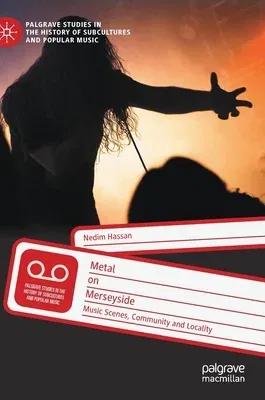Nedim Hassan
(Author)Metal on Merseyside: Music Scenes, Community and Locality (2021)Hardcover - 2021, 15 September 2021

Qty
1
Turbo
Ships in 2 - 3 days
In Stock
Free Delivery
Cash on Delivery
15 Days
Free Returns
Secure Checkout

Part of Series
Palgrave Studies in the History of Subcultures and Popular M
Print Length
206 pages
Language
English
Publisher
Palgrave MacMillan
Date Published
15 Sep 2021
ISBN-10
3030776808
ISBN-13
9783030776800
Description
Product Details
Author:
Book Edition:
2021
Book Format:
Hardcover
Country of Origin:
NL
Date Published:
15 September 2021
Dimensions:
21.01 x
14.81 x
1.42 cm
Genre:
British
ISBN-10:
3030776808
ISBN-13:
9783030776800
Language:
English
Location:
Cham
Pages:
206
Publisher:
Weight:
417.3 gm